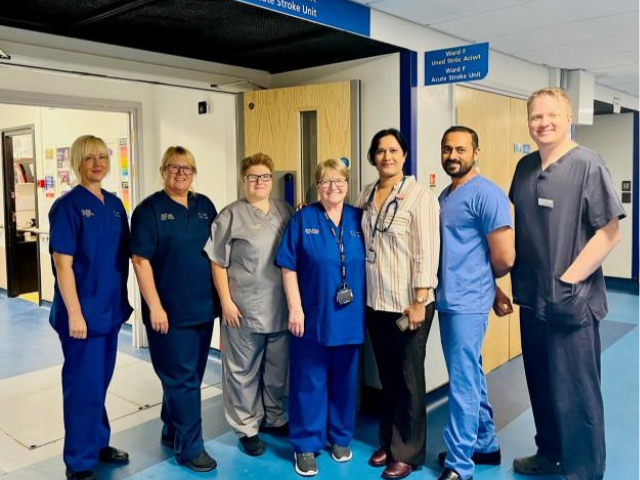
Nurses, midwives and allied health professionals across Wales encouraged to get involved in developing an action plan to support, deliver and lead research
23 February
The PRIORITY project, commissioned by Wales’ Chief Nursing Officer, Chief Allied Health Professions Adviser and Director of Health and Care Research Wales, will develop an action plan to increase capacity and capability for doing and using research in the nursing, midwifery and 13 allied healthcare professions.
Research-led practice has a significant positive outcome for patients and embedding research throughout health and social care is a key element of Health and Care Research Wales’ NHS R&D Framework, which was published in 2023.
An action plan will be co-produced with the professions, health boards and trusts, as well as universities, who will have an opportunity to share current capacity and tackle barriers to undertaking research in their roles and within the NHS and social care.
The plan will take a workforce and system-wide approach to ensure nurses, midwives and allied health professionals are able to access, embrace and value research, as well as build a research talent pipelines for Wales.
Chief Nursing Officer for Wales, Professor Sue Tranka, said: “This project will empower our nursing and midwifery workforce to use, lead, deliver and participate in research as part of their roles, and that they feel valued in doing so. This will be a plan unlike any other as it needs to ensure research is normalised in practice at every level - research should be for everyone so that benefits to patients and the public can be realised.”
Chief Allied Health Professions Adviser, Ruth Crowder said: “Delivering an integrated strategic action plan reflects policy in Wales and values innovation in all areas of practice. The project will integrate the allied health professions in a collective goal - whether you are a student or consultant practitioner or whether you think about and use research as part of daily practice or develop as a career researcher. Research will be embedded in every single AHP’s practice and will underpin the quality of care for all.”
Director of Health and Care Research Wales, Professor Kieran Walshe said: “We know that when NHS organisations are actively involved in research, it leads to better health outcomes for patients and a more capable and engaged workforce. Our health boards and trusts need to work in close partnership with our universities to build research capacity and capability and create the research leaders of the future. It's really important that research is a core part of healthcare delivery, and is not seen as an add-on. Everyone working in health and social care should understand how important research is. Nurses, midwives, and allied healthcare professionals should be able to learn and get involved in research with academic colleagues and industry partners in order to benefit our population and drive improvements to service delivery."
The 13 Allied Health Professions comprise art therapists, drama therapists, music therapists, podiatrists, dietitians, occupational therapists, orthoptists, prosthetists and orthotists, paramedics, physiotherapists, speech and language therapists, psychologists. Each profession is registered and regulated by the Health and Care Professions Council and works across all parts of the health and social care system and with people of all ages.